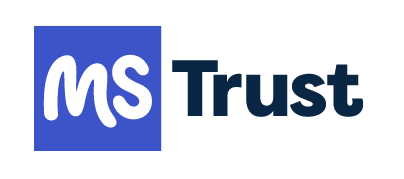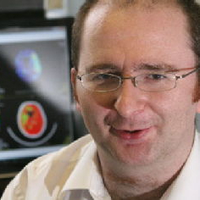Before you watch this webinar
Enhancing your learning experience begins with understanding you better. Collecting data enables us to tailor our educational content specifically for our audience. Discover more about how we handle your information in our Privacy Policy.
Event
#MSCovid19 – Running a remote MS service
Our sponsor

This activity has been supported by sponsorship from and Roche. The sponsor has had no control over the educational content of this activity.
Summary
Consultant neurologists Dr Niall MacDougall and Dr Brendan McLean who both practice in rural and remote settings, discuss the practicalities of remote-managing patients alongside Western Isles-based specialist nurse Rachel Morrison and neuro-pharmacist Joela Mathews.
All have varied experience with remote-managing their patients and discuss both their historic learning and their current practice managing patients during the COVID-19 pandemic.
Practical ideas on video-clinics, telemedicine tools and more abound in this useful webinar.
Rachel:
‘Coronavirus hasn’t changed our service’.
- Aiming to provide an equitable service across 9 islands, and unable to use Skype because it wasn’t NHS-secure, Rachel worked with her tech-team to develop a way to use video calls with NearMe technology.
- The service has reduced travel costs for patients, and is more convenient for them, as well as enabling her to provide clinics, expertise and support to a far greater number of patients each day than she would if running physical clinics and appointment.
- Rachel advises offering advice sheets to patients on how to use the tech and how to get the most out of their appointments.
- Rachel is working at home for her health and is still conducting a full service with very little change at all experienced by either herself or her patients.
Brendan:
‘I think it’s taken a lot of the stress out of the service’ – for patients and staff alike.
- Brendan notes that the local nurses find it easier to set up telephone clinics with a fixed clinic list, running 4 or 5 clinics per week.
- Any assessments that don’t need physical touch, such as looking at gait, walking distance, and such can all be done remotely.
- Brendan feels remote clinics have taken the stress out appointments for his patients, when contrasted with ‘face to face’ traditional appointments where there are just a few minutes for them to try and get all their information out at once.
- Brendan noted that both the neurologists and nurses can often respond far more quickly to people using phones and digital health solutions.
- The specialist nurses run an active email advice service with a 24 hour response rate.
- A survey carried out a few years ago found that remote clinics were getting well received by patients.
- There’s a great deal that can be done by talking to people and for the few aspects that need someone else to be with the patient, we can ask for a family member to support that.
Joela:
‘A lot of this is just common sense’ as we change how we get patients their medication during the pandemic
- Some home care companies decided to take no new patients. There will be a lead in each Trust who is managing this and new homecare companies are taking on these new patients, on a Trust by Trust basis.
- Remote-medication support:
- Courier use – we only have one courier which spans multiple conditions and if they travel far afield because patients have gone back to hometowns rather than self-isolate in London, this means no-one in London gets their medications on that day. Because of this we are using special delivery services with Royal Mail far more.
- Patient’s delivery addresses – many patients have their work addresses listed as their place of delivery for medications because that is usually where they are during the day; please remember to ask patients to update their details with their pharmacies as to where they are currently.
- Like everywhere, we in pharmacies and medications are also being impacted by sickness, so please bear that in mind in terms of capacity.
- Use common sense in monitoring – if someone has been stable on a given medication for some time, you can reduce your monitoring of them.
- If we reduce everyone’s treatment, we will end up with a different problem later on with people under-treated.
- FP10s for remote prescriptions – Trust rules mean that you have to have a person on-site to prescribe for you, and any neurologist on site can access FP10s to remotely prescribe. Try not to rely on primary care, or on a named individual as they may also become sick.
Questions answered included:
- How current infusions being carried out with ideas discussed around home infusions in the future
- How to manage relapse remotely
- The levels of scanning and monitoring of patients at present
- Whether anyone is using self-assessment batteries and questionnaires around quality of life and everyday living
- DMT initiation and use
- Remote management and adhering to compliance and governance guidance
Useful links:
- Shifting to self-monitoring – healthy lifestyles in MS
- AIMS assessment tool which Rachel uses annually with patients and could be shared with patients ahead of a video call as part of a self-assessment battery if required
- Webinars on the use of disease-modifying therapies during the pandemic
Were you registered on this course?
Log in to access resources..
LoginOur sponsor

This activity has been supported by sponsorship from and Roche. The sponsor has had no control over the educational content of this activity.
Encouraging excellence, developing leaders, inspiring change
MS Academy was established in 2016 and in that time has accomplished a huge amount with exciting feedback demonstrating delegates feel inspired and energised along their personal and service development journeys. The various different levels of specialist MS training we offer are dedicated to case-based learning and practical application of cutting edge research.








